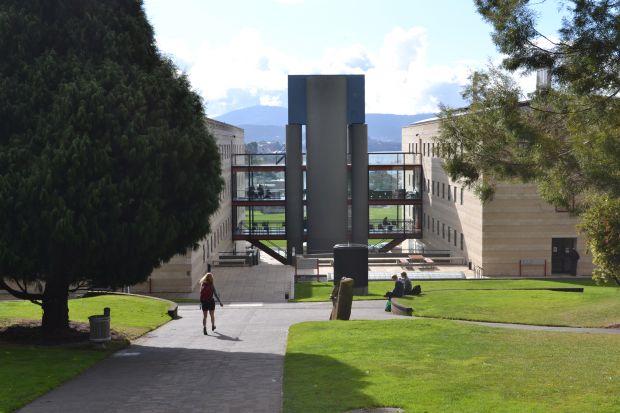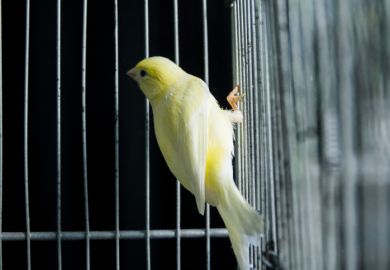The University of Tasmania will shed staff and more than three-quarters of its degrees as the coronavirus forces an acceleration of a planned course overhaul.
Vice-chancellor Rufus Black has brought forward a planned “transformation” of the university’s curriculum structure, after the epidemic exacerbated “headwinds” fanned by interstate and overseas competition.
In an email to staff, Professor Black says that the university is struggling to achieve even short-term sustainability. He says that two “known strategic risks” – an over-reliance on China as a market for international students, and “what is now emerging as a pandemic” – had “arrived simultaneously” at the beginning of the year.
This has aggravated pre-existing problems caused by demographics – a decline in Tasmania’s population of school-leavers, many of whom were lured to mainland universities – and interstate and overseas competition for international students.
Professor Black says that the UK’s reintroduction of post-study work rights and the redefinition of Perth and the Gold Coast as “regional” for immigration purposes – a change that improved their allure to international students – has reduced the university’s share of foreign enrolments.
“We are working against powerful forces,” the email says. “The year sees us start a long way behind our budget and with more financial challenges to come.”
In a strategic plan released in July 2019, Tasmania committed to “reshape our portfolio of courses” to make them more economically sustainable. Professor Black says that the university will now have to “simplify ourselves a lot more quickly”, with the work completed by the end of this year. “It would be good to live in a world where we didn’t need to accelerate our strategy…but these aren’t straightforward times,” he says.
Professor Black says that the “staggering complexity” of the university’s 514 degrees would need to be reduced to “somewhere less than about 120. All these degrees and units have to be maintained, reviewed and managed. The countless exceptions [to prerequisite rules] all have to be individually managed, often by multiple people. And we can only market a fraction of our hundreds of courses anyway.
“As we simplify our course structure it will enable us to simplify a lot of other work we do. We have all sorts of duplications, unnecessary levels of approval and ways of organising that don’t make the best of people’s capabilities.”
The changes will “inevitably eliminate work”, Professor Black concedes. “Where that happens, we will provide support for people to redeploy in our organisation. This will mean we need less people. We will lean hard on natural turnover to achieve as much of that as possible.”
He says that a new course structure has been drafted for discussion.
Kelvin Michael, Tasmanian division secretary of the National Tertiary Education Union, told the ABC that staff had been expecting a briefing on the coronavirus and were instead blindsided by an announcement about the course restructure.
Dr Michael told The Australian that job losses were likely, and urged the university to reconsider plans to move facilities into central Hobart and Launceston. “Instead of looking for savings in staff numbers…there is some obligation on the university management to also look at other ways of saving money,” he said.
Register to continue
Why register?
- Registration is free and only takes a moment
- Once registered, you can read 3 articles a month
- Sign up for our newsletter
Subscribe
Or subscribe for unlimited access to:
- Unlimited access to news, views, insights & reviews
- Digital editions
- Digital access to THE’s university and college rankings analysis
Already registered or a current subscriber? Login









